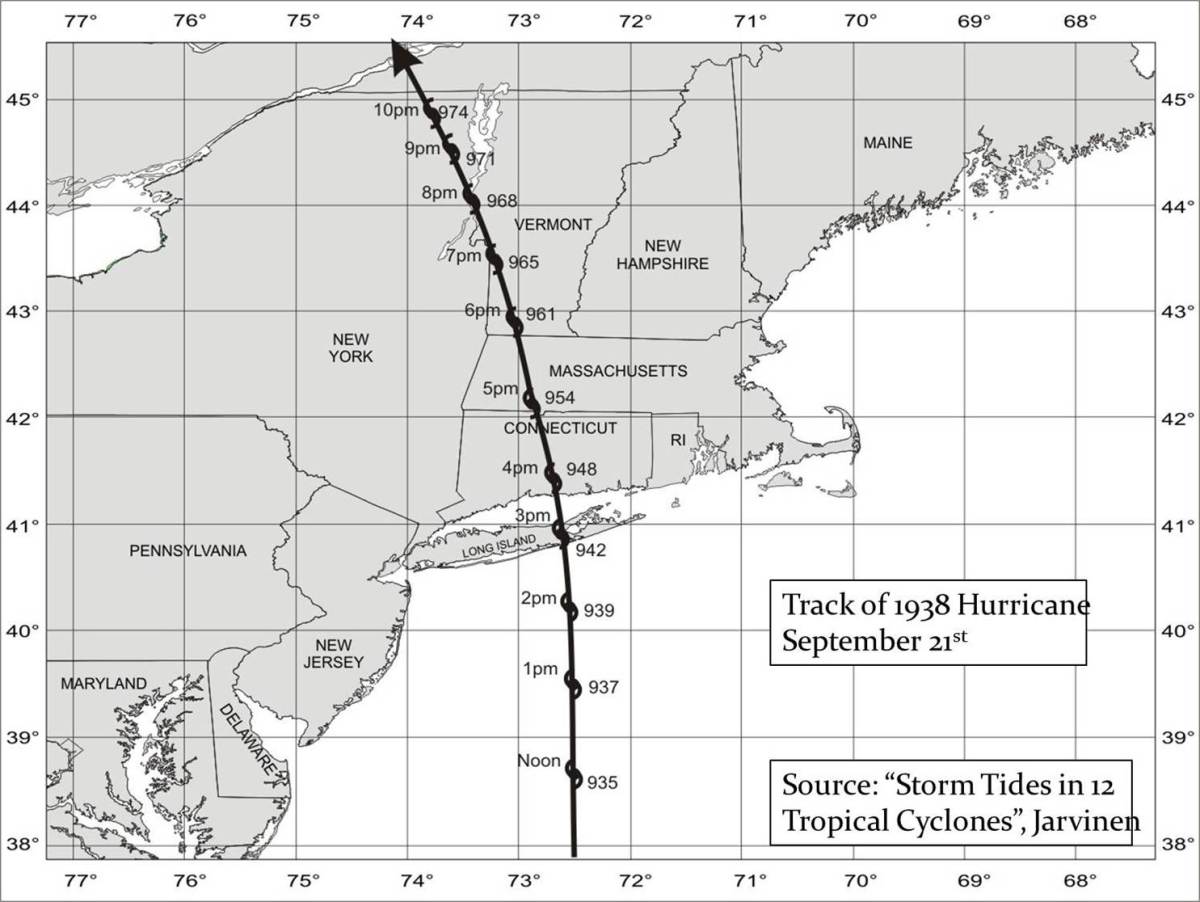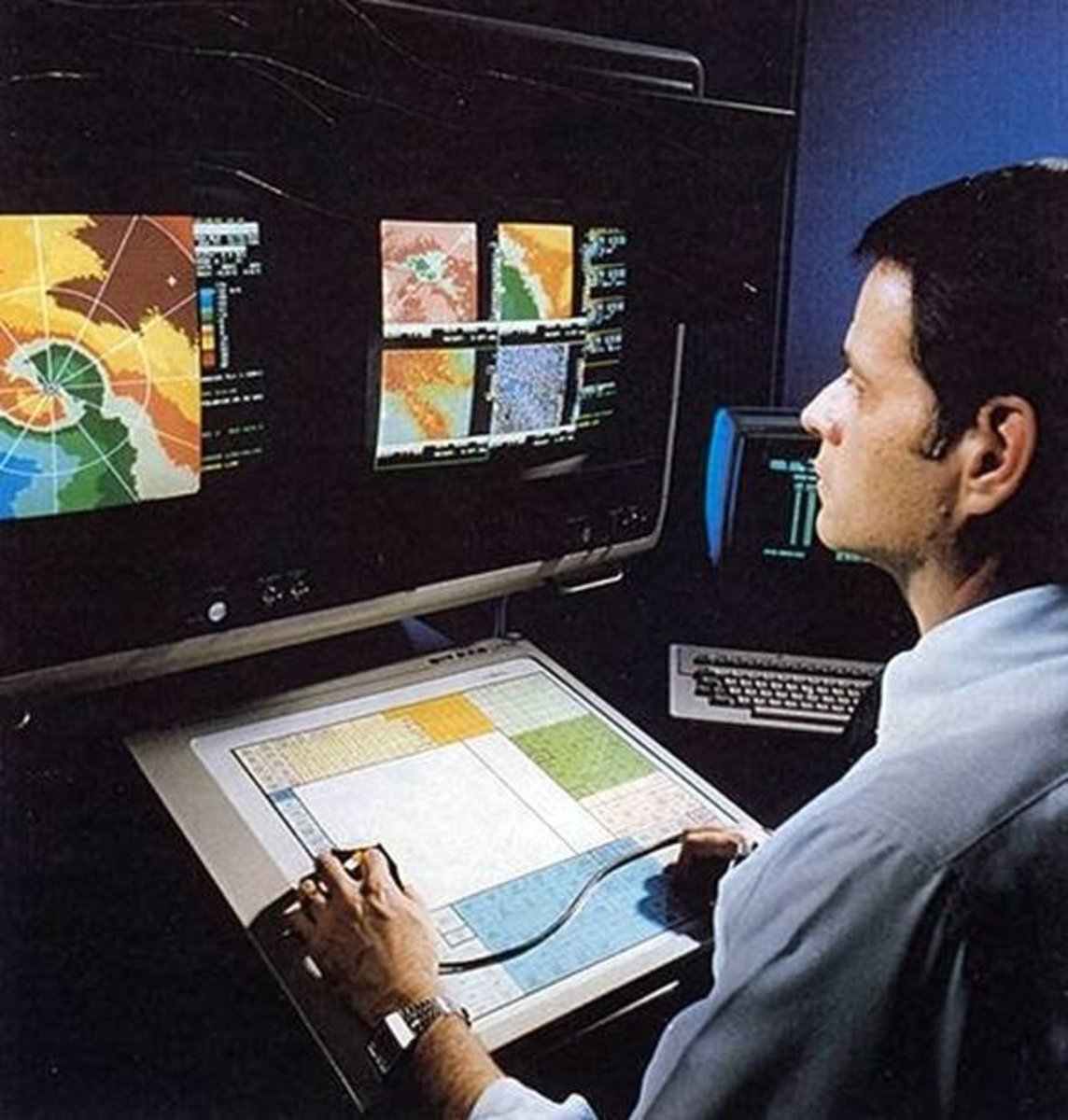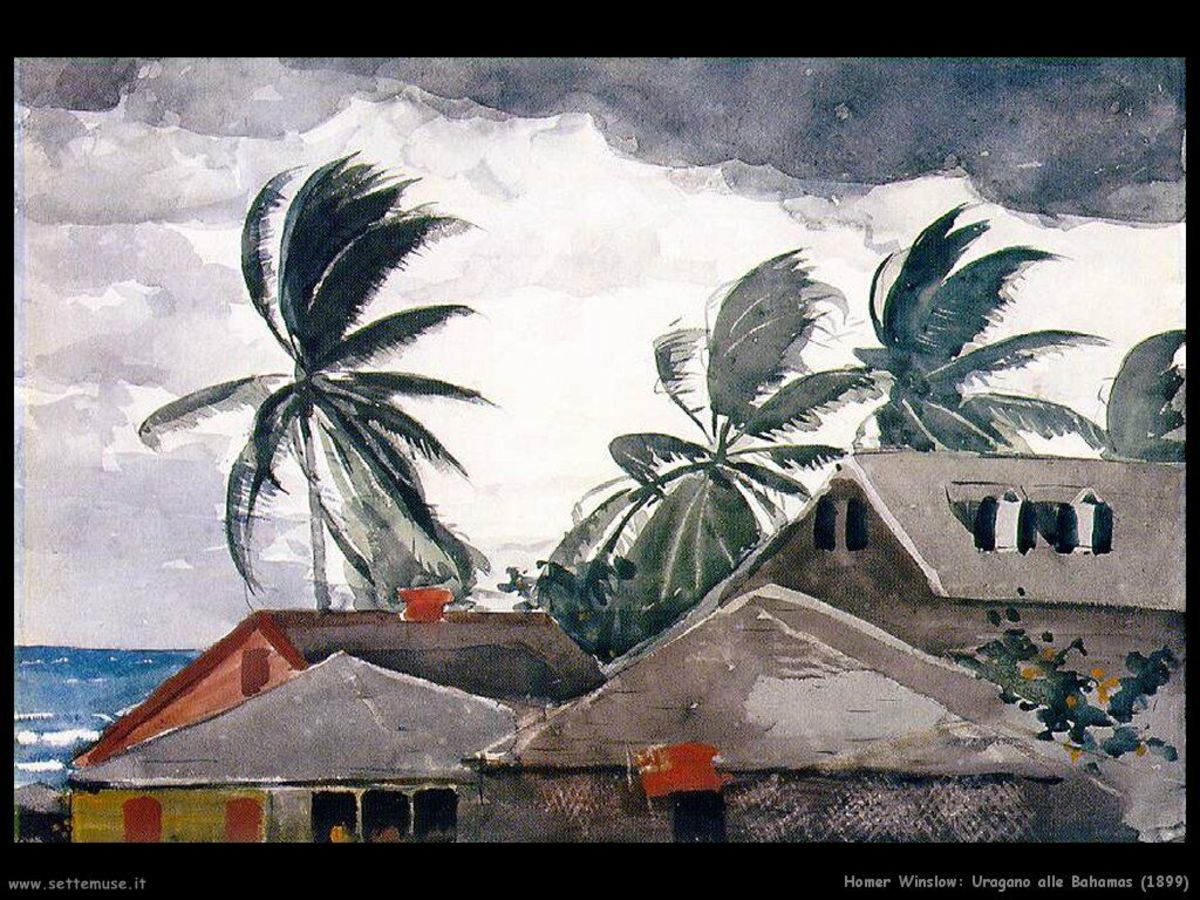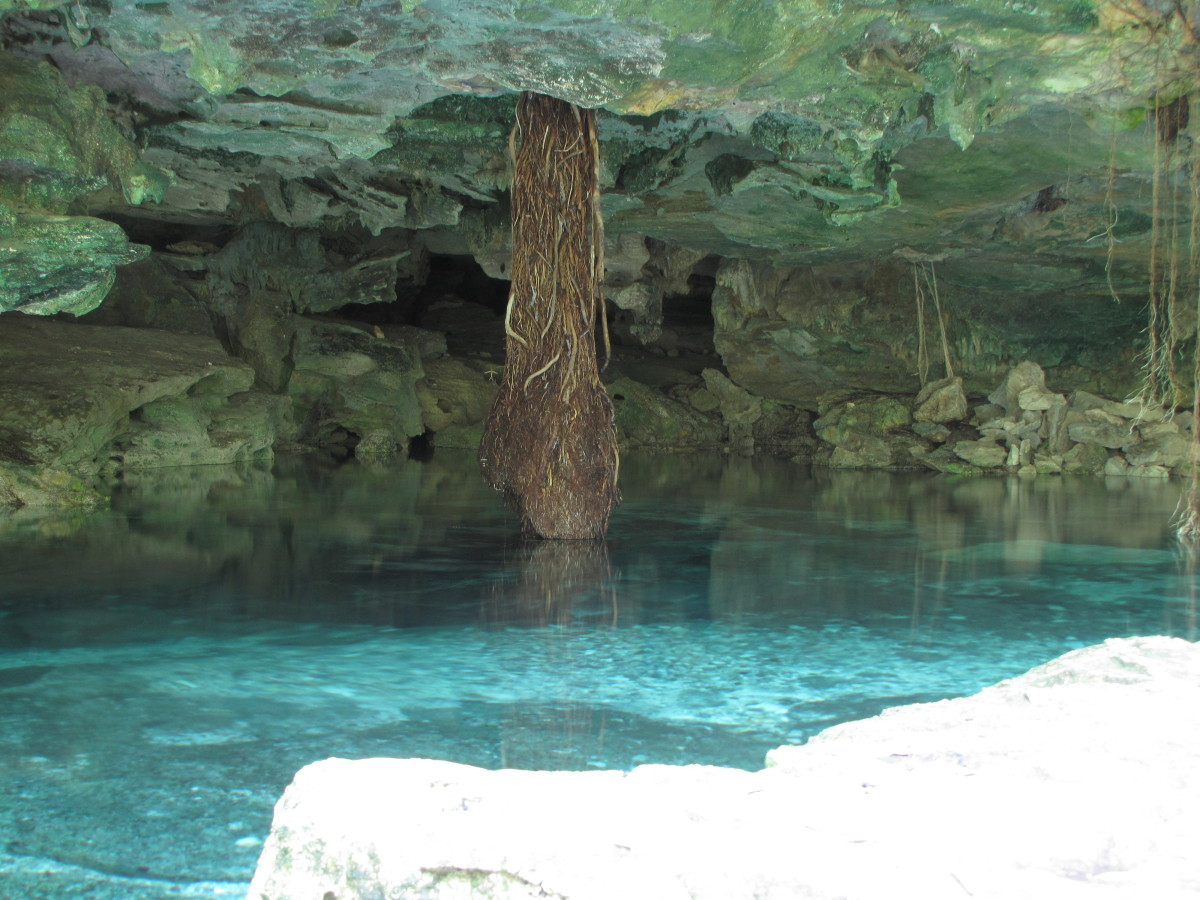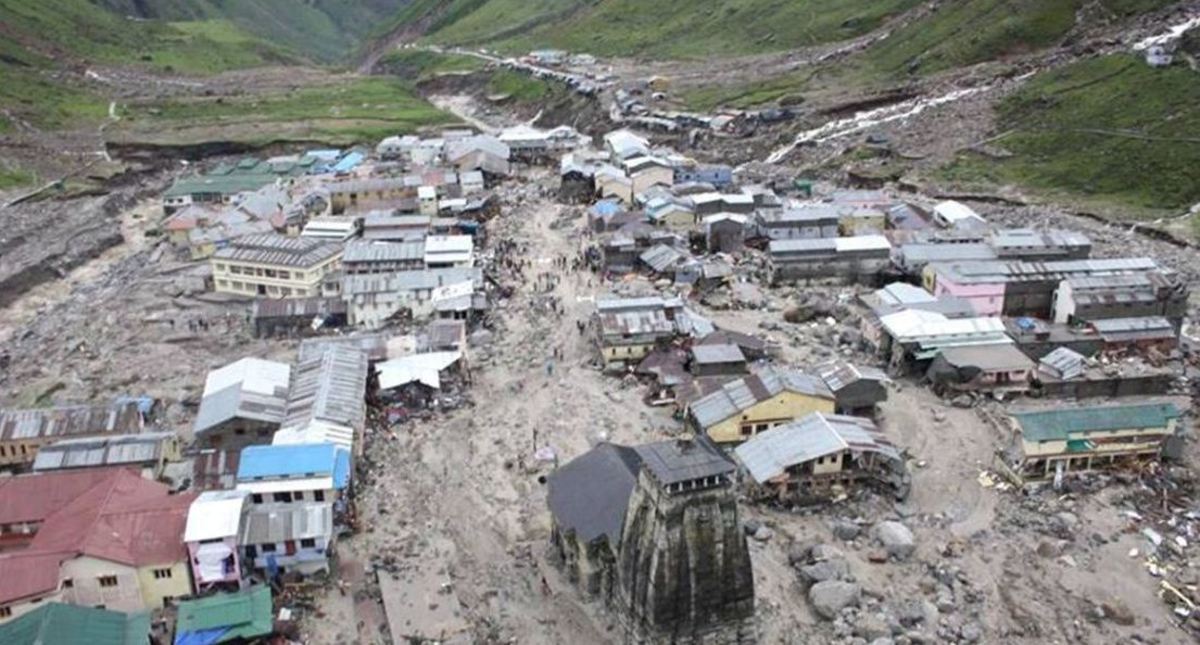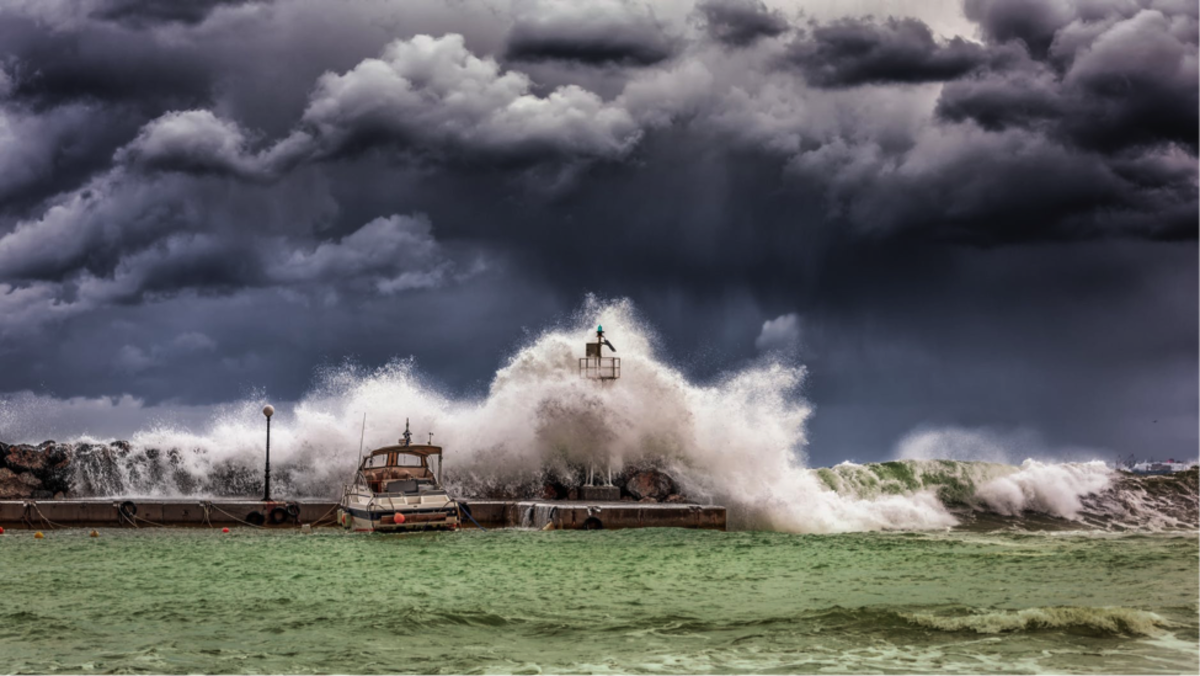Should I stay or should I go? Making a Hurricane Plan
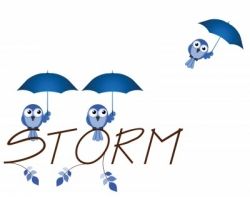
Evaluate your hurricane options to determine your best option
When you live in the path of tropical weather deciding whether to leave or stay and weather the storm can be very stressful. The projections keep changing, hotels are filling up, and you've gotta make a choice: Do I stay, or do I go?
This page will give you a list of issues to consider, resources to evaluate those issues, and tried and true tips to weather the storm with good humor and as much comfort as possible.
I am considering only SMALLER storms on this page- primarily categories one or two- but even those hurricanes must be evaluated individually and carefully weighed.
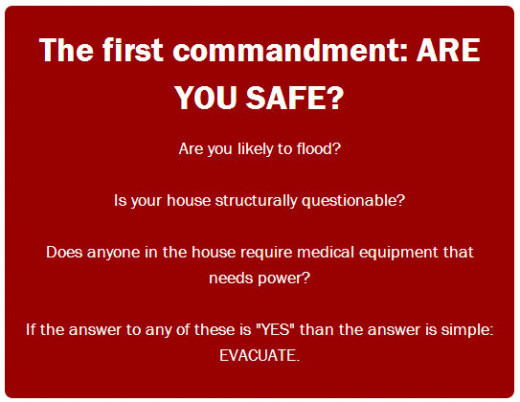
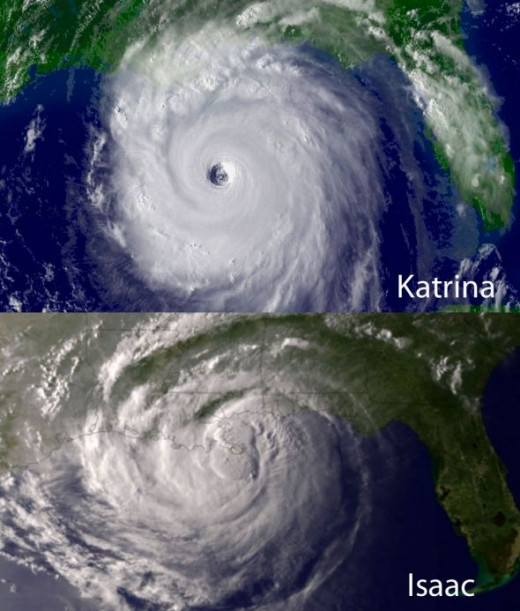
Not all storms are created equal
Strength isn't the only consideration
When a storm’s on the way, everybody within a thousand mile radius listens to every report, watches the radar and generally does their best to read the tea leaves. It becomes an obsession, and everybody has their own theory and interpretation. Each storm gets assigned personality traits, too- to quote a friend, “Isaac was Katrina’s slacker brother who just hung out on the couch and refused to leave.”
The above photos compare two very different hurricanes approaching the Gulf Coast- Hurricane Katrina, a strong category 3 at landfall, and the recent Hurricane Issac, a category 1.
While both storms are huge, the biggest difference is Katrina’s very pronounced eye, an indicator that the storm is churning powerfully around the center. It’s easy to see how her storm clouds are tight and organized while Issac’s were sloppy and easily differentiated.
The images don’t tell the whole story, though- Isaac, bum that he was, squatted over the area and wouldn’t move. He hung around for nearly three times as long as Katrina. keeping the power off and supplies out of town for several days.
When deciding whether or not to stay don’t forget that just because a storm isn’t all that powerful doesn’t guarantee a quick and easy return to normalcy. Be ready to be patient if you stay.
So much to consider...
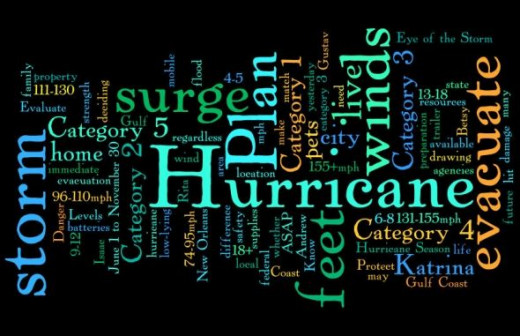
Ask yourself if...
Evaluate your options
- Are you a heat wimp? The power's going to go out, and you're going to sweat. The first 36 hours after a storm aren't bad- the outgoing system drags the humidity away in its wake, but right after comes the heat. Since the storm also took the clouds and the breezes, it can be brutal.
- Do you have a support system? How well do you know your neighbors? Do you have friends and family nearby? You really don't want to stay if you don't have someone you can call for backup if (God forbid) anything bad happens.
And you'll need someone to laugh with afterwards, and tell stories about how it really wasn't so bad after all... - Do you have a gas stove/water heater? Unlike electricity, gas power generally works fine, so at least you can cook and shower- no small things.
- What's your family's score on the fight-o-meter? The reality is that by three things aren't as much fun any more. You're hot and stinky, you're not sleeping well and things get tense. Even the very best households will get cranky, but if there's already discord there's going to be trouble. Whether it's grumpy live-in in-laws, miserable teenagers or some other family dynamic, make sure everybody's on board before deciding to ride it out.
- What do the pros say? If the city/state/federal officials tell you to leave, then there's no thought required- it's time to go.
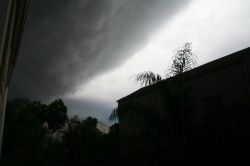
If you're leaving, keep these things in mind
Make sure to let your neighbors know what you’re doing, and alert your family out of town.
You’ll head in the opposite direction of the storm of course…but so will everyone else. If you’re not staying with friends/family, call ahead as early as possible to make 3 nights of hotel/motel reservations, ideally at one with a liberal cancellation policy that won’t penalize you if the situation changes.
Be prepared for many hours of sitting in traffic – be patient and have snacks and water on hand. For example, a typical trip from New Orleans to Baton Rouge takes an hour and a half. During Hurricane Isaac’s evacuation- which was very light- a friend gave up after 5 hours on the road and only getting halfway. He turned around and came home.
Check with local authorities because there may be special instructions of when you should leave and in what direction. There may be roads that are closed and inaccessible, so verify all routes before you leave.
Be prepared for the cost- one reason many people don’t evacuate is how quickly the expenses add up. Three nights is a typical evacuation, but it could easily stretch to a week- and you’ll have to eat out for that whole time. The longer it goes on, the higher the odds you’ll need to go shopping for additional supplies- a family’s cost can easily (and quickly) reach $1,000 or more.
Wind pushing the water over the levee
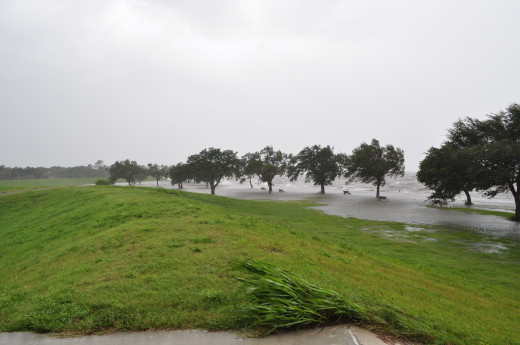
Shopping list
Some of these are things you'd guess, but some are things that only experience teaches.
- Water One gallon per person per day. There's always a possibility of a boil-water advisory or a break in the water system, so better safe than sorry- get lots.
- Battery powered lanterns prices have dropped in the last few years, and they've become much more efficient. They provide a lot more light than candles and are far safer, especially if you have kids and/or pets running around. I'd much rather not test the fire department's response time during a storm.
- Hand crank emergency radio Standard battery powered radios are fine, but you never know when they'll die, plus the newer models have cell phone hookups to charge those as well.
- Non perishable food- heavy on the junk Once the power's gone you'll be able to save the food inside the fridge for 24-48 hours without much of a problem, but above and beyond that, snack food has saved many a life, and wiled away the hours. Take a poll, and make sure to have everybody's favorites at hand. This is no time to be virtuous.
- Large pack of lighters They disappear, and you'll need them to light the stove. The gas works, but the starter doesn't. Non-smokers get caught in this one a lot.
- Bug spray After the storm come the flies and the mosquitoes. There are lots of puddles and stagnant pools of water. It doesn't take all that long for there to be a baby boom in the insect world.
- A minimum of one week's worth of all medications If you only have a few days left but it's too soon for a refill, call and speak to the pharmacy- they can contact your insurer for an exemption so you can have it ahead of time.
- A minimum of one week's pet food Animals often don't eat much before a storm, and not at all while it's nearby, but like humans they wolf it down once it has passed. They also tend to get very stressed by all the atmospheric changes, so have their favorite treats, blankets, etc.
- A basic wall phone if you have a land line Because modern home phones have answering machines, caller ID, etc, the units require power but the phone service itself does not. Get the most basic phone you can and keep it in a box with your other supplies, ready to plug into the wall when the power goes out.
Even a small storm can do big damage
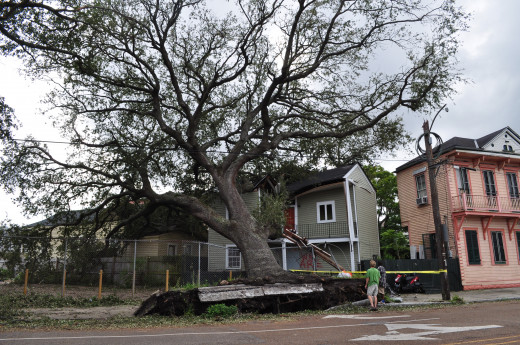
Take action!
Regardless of whether you stay or go, there are things you need to do to secure your family and property. These are simple steps you can take, but they do require some planning ahead to accomplish.
- Board up your house - although if the storm is strong enough to want to protect your windows you should think carefully about whether staying is the right option.
- Gas up the car- do this as early as possible, as stations run out quickly. Even if you've decided to stay, you may change your mind as the situation evolves. After the storm there's no way to pump gas without electricity, so it may be days before you can top up. Also, you'll likely be spending time sitting in your car with it running to charge your phone/enjoy some AC.
If you're lucky enough to have a generator, be sure to calculate what its gas usage is- and don't forget that they need oil, too! - Get cash- Even when the power comes back, credit card/ATM machines often don't come back online immediately. Be ready to pay cash for awhile, so get at least a couple hundred dollars to have at hand.
- Scrub the tub and fill it with water. This is kind of like in old movies where they get hot water and bandages when a woman goes into labor. Why? Well...because it can't hurt, mostly. One excellent potential use is that if the waterlines fail, you can use it to flush the toilet, and you won't want to waste your drinking water to clean yourself up.
- Charge all of your electronics to the brim. Turn your cell phone on the power-saving options so it doesn't keep automatically checking for email and Facebook updates- it'll last a lot longer. Consider getting a backup battery for your phone to have at hand, particularly if you don't have a car to use as a charger.
- Before the storm, call your friends and family. Tell them you're staying, explain that you've educated yourself and that you'll be fine. Make sure they understand that the best way to get a hold of you for the next few days will be by text message. Phone towers come down, and even those that don't are easily overwhelmed with calls. Texts are handled differently- they get stacked up and sent through the system sequentially. It might be slightly delayed, but a text will get through when calls don't.
- Gather your documents into a waterproof bag- Again, if things change and you decide to go, you'll want to take things like insurance policies with you to get the process of restoring your home as soon as possible. If you're staying they'll be protected in case of a roof leak or other issue.
- Freeze sandwich bags of water- as many as you can fit- small cubes of ice melt quickly, but large blocks take much more time. Freeze bottles of your drinking water and move the frozen bottles in your fridge- they'll help keep the temperature low.
In a typical power outage, food in the fridge should be safe for 24 hours, in the freezer 48 hours- the more blocks of ice you have packed in, the longer you can stretch it. Ironically, the less free space you have in there, the cooler it'll be, so fill in those gaps with your ice bags, then open he refrigerator as little as possible to keep the cool in. - If you're leaving, put the your food in garbage bags inside the fridge and freezer- that way, if you come back and find that power was out and the food is a loss, the mess (and the smell!) are contained and easily disposed of.
- Talk to your neighbors- Get an idea of who's staying and who's evacuating. Make sure everybody has a plan, particularly the elderly who might not feel they have many options.
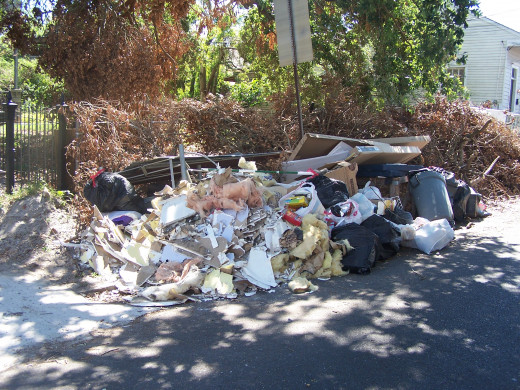
Why do people stay, anyway?
For lots of reasons both practical and emotional.
For many, it’s financial- aside from the cost of staying away, many people don’t have cars and don’t want to be herded onto buses and sent to God-knows-where unless the Hurricane looks like a doozy. There are those who are caring for others (human or animal), or feel they have to watch over their property.
But this lens is specifically targeting the smaller hurricanes- and for many people, riding out the category ones and twos is a badge of honor. You get to socialize with your neighbors, complain about the heat, eat too much, drink too much, and generally say you were there. When the power went out. When the neighbor went running down the street after the dog. When everybody got together and had that huge BBQ.
And- ironically- when the blessed power came back on and everybody stood around the grate giving thanks to the gods of air conditioning.
We stayed after Hurricane Gustav in 2008, which was the first major storm after Katrina. It seemed a little dicey- the first big test of the newly improved levee system, after all- but we were on some of the highest ground in the city, and the storm was clearly weakening as it approached land. My husband was asked to write a piece about it for a friend’s online newspaper, and if you’d like to read a more elegant description than I can put here, please visit my blog to read Why We Stay. It’s long, but it’s good and speaks more to the culture of New Orleans than I wanted to get into here.
National Hurricane information links
Your local news is the best place to find out what's expected in your specific town or neighborhood, as well as what the local authorities need the citizens to do, but for the big picture, here are some of the best sites out there:
- National Hurricane CenterThe government site with lots of information about upcoming storms and forecasts.
- Protecting AmericaThe site is run by a former FEMA head, giving information about emergency preparation and recovery
- Weather Forecast & Reports - Long Range & Local | Wunderground | Weather UndergroundWeather Underground provides local & long range Weather Forecast, weather reports, maps & tropical weather conditions for locations worldwide.
- FloodsmartCheck your risk of flood for free


